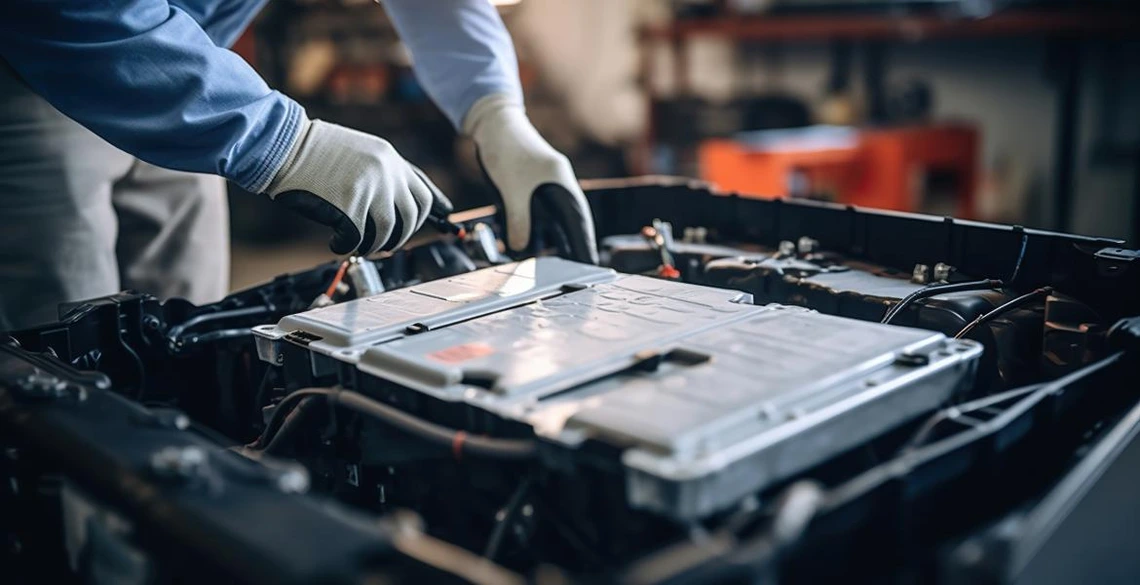New research uses machine learning to prevent car battery fires
Basab Goswami's framework sets the stage for car manufacturers to more accurately predict and prevent dangerous EV battery fires with machine learning.

As global demand for electric vehicles increase, as does the need for advanced safety measures in lithium-ion batteries.
New research led by a University of Arizona doctoral student proposes a way to predict and prevent temperature spikes in the lithium-ion batteries commonly used to power such vehicles. The paper "Advancing Battery Safety," led by College of Engineering doctoral student Basab Goswami, is published in the Journal of Power Sources.
With the support of $599,808 from the Department of Defense's Defense Established Program to Stimulate Competitive Research, Goswami and his adviser, AME professor Vitaliy Yurkiv, developed a framework that uses multiphysics and machine learning models to sense, predict and identify lithium-ion battery overheating, known as thermal runaway.
In the future, this framework could be integrated into an electric vehicle's battery management system to stop a battery from overheating, thereby protecting drivers and passengers, Goswami said.
"We need to move to green energy," Goswami said, "but there are safety concerns associated with lithium-ion batteries."
